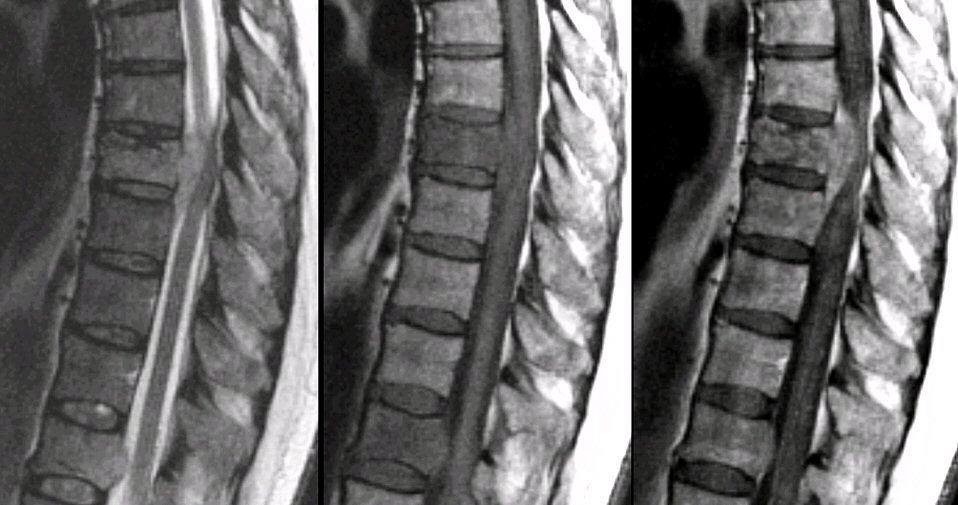
|
A 53 year-old woman with known endometrial cancer presented with a one month history of mid-back pain followed by rapidly progressive paraplegia and incontinence. |

![]()
![]()
| Neoplastic Spinal Cord Compression: MRI scans of the thoracic
spine; (Left) T2-weighted; (Middle) T1-weighted; (Right)T1-weighted with
gadolinium. Note the tumor arising from the vertebral body at T8 that compresses the thoracic spinal cord.
On the gadolinium image, the lesion enhances. Also note the
characteristic convex shape of a mass that arises from the extradural compartment.
Metastatic tumors that affect the spine often begin as a metastasis
to bone, especially the pedicle. As they grow, they cause local
pain. They then enlarge further and affect the exiting nerve root at
that level resulting in a clinical radiculopathy. Only later do they
grow and compress the spinal cord or cauda equina, depending on
their location. Clinical signs of spinal
cord compression typically appear acutely over hours to days.
They are a neurological / neurosurgical emergency usually requiring
a combination of high dose corticosteroids, radiation and surgical decompression. |
Revised
11/25/06
Copyrighted 2006. David C Preston